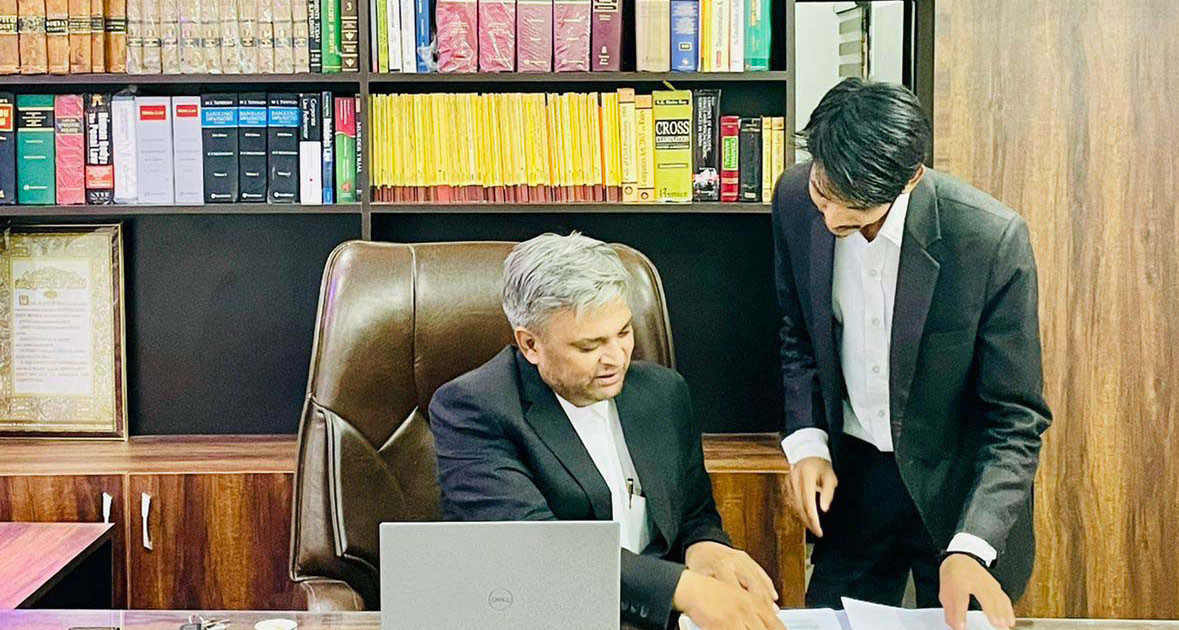best criminal defense lawyer
best criminal defense lawyer
9 Different Types of Legal Defenses in Criminal Law
When you have been charged with a crime and you need one of the best criminal defense lawyer, one of the first questions you might ask is what types of defenses are available to you. This is where you will need the to know the legal defenses in criminal law, and where defense lawyer strategies that have been perfected with time and experience can help you.
What Is a Criminal Defense?
There are many different types of criminal defenses. Your Lawyer can help you explore your rights and options, including which defense or defenses are available and applicable in your case.
 So just what is a criminal defense? A criminal defense is a strategic argument that attempts to challenge the validity and sufficiency of the prosecution’s evidence. The prosecution, often referred to as the State, is the party trying to prove the criminal charges against you. The prosecution must prove the crime beyond a reasonable doubt.
So just what is a criminal defense? A criminal defense is a strategic argument that attempts to challenge the validity and sufficiency of the prosecution’s evidence. The prosecution, often referred to as the State, is the party trying to prove the criminal charges against you. The prosecution must prove the crime beyond a reasonable doubt.
This breaks down as they must prove every element of the crime you have been charged with beyond a reasonable doubt. This is called the “burden of proof,” and it is a heavy one.
best criminal defense lawyer? why?
because best criminal defense lawyer would only about the best defense that may be put in your particular case. Though there are other common defenses available which are as follows: –
9 Common Defenses to Criminal Charges
There are many common defenses to criminal charges. A defendant may argue that there are holes in the prosecution’s case, that evidence was gathered in violation of the defendant’s constitutional rights, that another individual committed the crime, that the defendant had a justifiable reason for committing the crime, that the defendant lacked the intent to commit the crime, or that that defendant had a mental incapacity which caused him or her to commit the crime.
While some defenses are merely raised with the aim of showing that the prosecution has failed to make its case, other defenses are affirmative defenses, meaning they must be independently proven. So, what are the major criminal law defenses? We have provided a helpful list of the major criminal defenses below.
1. Innocence
One of the first defenses to criminal liability is the defense of innocence. This defense is pleaed when you have not committed the crime. it must be noted that the prosecution has to prove each and every element of the offence charged against you and prove it beyond a reasonable doubt.
To be innocent you do not have to prove anything. However, you have the option of leading defence evidence, documents, and other evidence in support of your innocence.
2. Constitutional breaches
These are types of criminal defenses used in criminal trials and involve the irregularity of investigation and the way by which the evidence was collected by police and other law enforcement. Don’t miss these important defenses, because they could result in dismissal of the entire case.
Constitutional breaches include illegal search and seizure of your home, car, clothing or person, failure to obtain a warrant for entry, obtaining an improper confession, or failure to follow procedural safeguards and guidelines of supreme Court in D.K. Basu Case” at the time of arrest. Police often make mistakes in the way they do their job. These mistakes may require suppression of evidence against you, if not dismissal of the prosecution’s entire case.
best criminal defense lawyer
3. Alibi
Certain types of defenses in criminal law, such as the alibi defense, are affirmative defenses. This means the accused must prove the defense, and in the case of an alibi, it means that the accused must prove that he or she was somewhere other than the scene of the crime at the time of the crime.
Supportive evidence a accused might offer includes testimony from someone he or she was with, CCTV footage, receipts from a restaurant, store, movie theater or sporting event, or phone records or any .
best criminal defense lawyer? why?
4. Insanity
The insanity defense, which you may hear about all the time in tv courtroom dramas, is used infrequently for a few reasons. The first is the insanity defense is another affirmative defense, which requires that the accused prove, beyond a reasonable doubt, that he or she was suffering a severe mental disease or defect at the time the crime was committed.
The insanity defense means that either the accused was unable to distinguish right from wrong or incapable of forming mens rea (criminal intention) when the crime was committed.
The second reason insanity is rarely raised is that the defense requires the defendant to admit that the crime was committed, and that they committed it.
5. Self-Defense
The defense of self-defense may be raised for crimes like assault, battery, and murder, where the accused used violence in a justified way to respond to violent actions or the threat of violent actions coming from the victim. The amount of force used by the accused must be reasonable and proportionate (generally, the same or less) to the amount of force used by the victim.
For example, a accused’s self-defense against a middle-aged man attacking him with a knife in a fight will be treated very different than his self-defense against a kid throwing stones on him.
6. Defense-of-Others
Like self-defense, another defense involving justified use of force or violence is the defense-of-others defense. This may be used where the accused used violence to protect someone else – a spouse, a child, another family member, or even a stranger. A person could invoke this defense if they used violence to stop someone who physically attacked another rider on a bus.
7. Defense-of-Property
Similar to self-defense and the defense-of-others, the defense-of-property defense may be raised where the accused used force or violence to protect property, such as land or items, from damage or destruction. This defense has an additional limitation, in that the amount of force used to protect property can never be lethal.
8. Intoxication
a. Involuntary intoxication
Involuntary intoxication is a lack of intent defense. If the accused was in a state where he or she did not know what they were doing due to intoxication, this defense cancels out the intent aspect of most crimes.
Can being too drunk or too high really serve as a defense to committing a crime? The answer is maybe. If the person who was intoxicated did not become voluntarily intoxicated, such as if their drink was “spiked” or they ate something at a party did they did not realize was “laced” or drugged with a narcotic.
b. Voluntary Intoxication
Unlike involuntary intoxication, getting drunk or high deliberately and then committing a crime will not stand as a valid defense. However, certain crimes that have a specific intent requirement – meaning, the prosecution must prove beyond a reasonable doubt that the accused intended to commit the act (mens rea), and additionally, intended the specific consequences of his or her act to occur – may be subject to the voluntary intoxication defense.

9. Mistake of Law / Mistake of Fact
Sometimes, an accused may have been unaware of a fundamental element of a crime that the prosecution has charged him with. For example, if an accused is charged with stealing a car, but believed his family member or friend wanted to give him the car, a mistake defense would exist.
This defense is also a useful embezzlement defense or fraud defense. For example, with an embezzlement charge, if the accused was in a position of authority or responsibility over someone else’s property, kept or used the property without the permission of its rightful owner, used the property to his or her benefit, and had the intent to permanently deprive the owner of the property, this would ordinarily constitute embezzlement. However, if the accused thought he or she was given the authority to use the property by the person, such as believing he or she was supposed to make an investment with the victim’s money, they would have a valid mistake defense.
other defenses available to an accused are many including Coercion, threat, Limitations etc.
This an overview of the defenses which may be available in your criminal case. For an analysis of the particular facts and circumstances of your case and to choose the best criminal defense or defenses available, an experienced best criminal defense lawyer in Delhi can help. Contact Deepak Jakhar Advocate to schedule a consultation.

